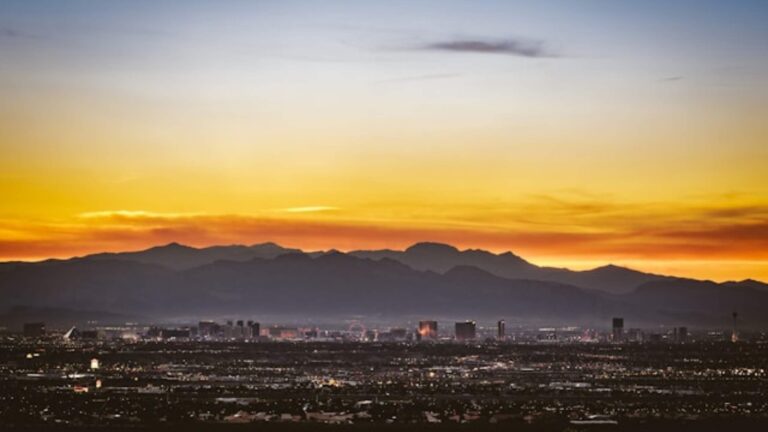Actor Mark Wahlberg wants to move Hollywood, which made him a household name, to Southern Nevada.
Wahlberg, star of films like The Departed, The Fighter and Boogie Nights, envisions Hollywood 2.0 in the desert. The project would feature ten buildings, including stores and restaurants, to support film studios on a 31-acre site in Summerlin for $1.8 billion.
Summerlin Production Studious would stand at South Town Center Drive and West Flamingo Drive near the Las Vegas Beltway.
Proposed Massive Tax Credits for Hollywood 2.0
Wahlberg, who lives in Las Vegas, wants Nevada to expand tax credits for the Summerlin project. The state now offers $10 million in credits each year, one of the few states that has yet to give up on this giveaway policy.
Wahlberg wants Nevada to double the credits. He argues that Las Vegas is a cheaper and cushier environment for film employees than Los Angeles and, therefore, can lure the industry.
One Nevada lawmaker thinks Wahlberg’s goal is chump change. State Sen. Roberta Lange (D-Las Vegas) wants to make $95 million in tax credits available annually over 17 years. That is a drop from the bill she proposed in 2023 – up to $190 million available annually for 20 years – which failed to advance. But does it make fiscal sense for the state to give hundreds of millions of dollars to corporate giants such as Sony Pictures Entertainment?
Sony said it would like to spend up to $1 billion on production in southern Nevada over the next decade. Also, Howard Hughes Holdings told the Nevada legislature last year that it would stake $700 million to build the production studio as a show of faith in Summerlin.
Are Film Tax Credits Good for Nevada?
If you crunch the numbers, the push for increased tax credits makes no sense.
Sony, one of the five largest studios in the United States and one of the 100 largest companies worldwide, will locate wherever it can most profit. It does not earn nearly $10 billion annually in movie revenues by accident.
If it can make the most moolah in southern Nevada, it will go there with or without the tax breaks. Sony’s plan to spend a billion in Nevada suggests this.
“There’s a tremendous amount of advantages” in building studios in Las Vegas, Sony Chairman and CEO Tony Vinciquerra said.
Hughes CEO David O’Reilly said Hughes and Sony would spend money on Summerlin Studios before receiving tax credits, and officials said Vegas studios would attract billions of dollars in private investment.

So, why do they need public money?
They do not. Look at Wahlberg’s argument: the tax credits can affect Sony’s decision to locate in Las Vegas rather than Los Angeles only if they make up for the loss of profit that Sony expects in the move. If the state makes the package appealing enough, almost any company can move to Nevada. But that does not mean it is good for the state.
Wahlberg argues that Hollywood 2.0 would create 10,000 good jobs. How good? That is a matter of debate. Wahlberg says the typical production job would pay $100,000 more per year than the typical job now in Vegas. This implies that a production job would earn about $180,000 a year. (Median household income in Nevada is roughly $80,000.)
But Vinciquerra said the typical production worker earns $100,000, not $180,000.

So, Nevada residents could net $20,000 per job – that is, $100,000 rather than $80,000 – if the government had created typical jobs by spending tax money with 10,000 jobs beckoning. Nevadans would get a net gain of $200 million in annual income. If the tax credits amount to less than $200 million, Nevada could gain, albeit not a great deal.
A Race to the Bottom
Consider a last twist in the tale. Suppose that Sony is so valuable to a state to justify tax breaks. Then, to keep Sony, California will offer its own tax breaks. The bidding between California and Nevada would continue until the winning state gives away more than it gains (because any net gain for the state would spur its rival to bid more).
Vinciquerra said that Sony is rethinking whether to stay in Los Angeles because “it’s gotten pretty crazy here politically.” That sounds like the opening gambit in a game to extract political favors from those crazy Californians.
Indeed, Lange, the Nevada state senator, in her new proposal to the legislature for Summerlin tax credits, said the film industry sought to relocate from Hollywood because tax credits in California were “becoming scarcer to secure.”
This is a war between the states or a race to the bottom. There are other negatives, as well.
The Average Nevadan Pays for Corporate Hollywood?
Although these are major thoroughfares, the proposed studio would uproot a neighborhood of single-family homes. In March, the Clark County Zoning Commission approved variances for the project over residents’ protests. Usually, a zoning commission checks for consistency with the land-use code, but they don’t play by those dull old rules in Vegas.
Of course, what’s being overlooked in the above discussion is that the more generous the tax incentives, the higher the tax rates must be elsewhere to collect the same revenue. Residents face the difficulty of paying more in taxes or getting less return.
Suppose Nevada lawmakers want to create a friendly environment for all firms and industries. If that is the case, they should stop with the targeted incentives and instead embrace growth by enhancing economic freedom for all residents.
Sign up for Nevada Policy’s weekly emails to stay up to date on the most pressing issues facing Nevada.

